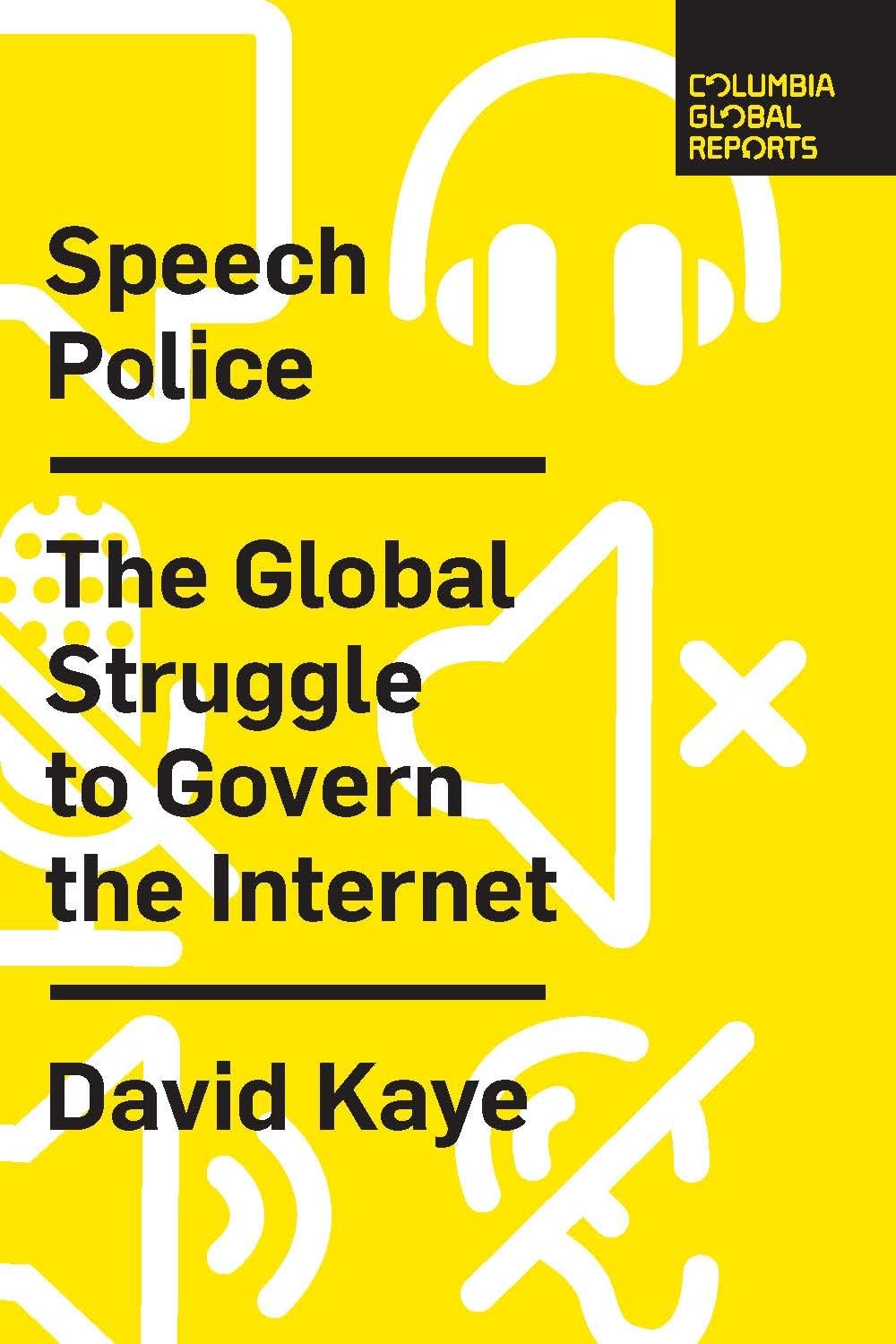

Full description not available
K**S
great
delivered in a timely manner and in great condition!
P**E
Rethinking the First Amendment
There needs to be a real discussion of what constitutes free speech and who is going to make those determinations.This book is one of several that is opening up the discussion of this topic and shows how the Europeans, not saddledwith a "First Amendment" have dealt with the tech companies regarding content. We have not had that discussionhere. This needs to be addressed because the lack of control on content is literally killing us and driving us apart.
M**T
Good summary of the problems. Great references
This book sets itself an impossible task: How to govern speech on the Internet (primarily about social media, which in some parts of the world, is the only “Internet” people see) in such a way as to preserve freedom of expression while at the same time preventing abuses like hate speech, terrorist incitement, crime, and disinformation. Dr. Kaye is a professor of law who served from 2014 to 2020 as the United Nations “Special Rapporteur on the promotion and protection of the right to freedom of opinion and expression” (quoted from his faculty page University of California Irvine). He has the credentials to make a serious study of the problem and, as might be expected, leans toward freedom of expression in ambiguous cases.But while issues of freedom of expression involving individuals and governments are complex, social media adds another layer to the problem. First, individual subscribers are both social media consumers and content providers. Much of this content is merely banter or opinion expressed as such, but some (a considerable amount, as it turns out) is deliberate or unwitting falsification cast as fact. Second, governments, with an understandable incentive to prevent socially disrupting content, can be both the rectifiers of disinformation (or hate) and its propagators depending on the particular government and the perceived self-interest of its institutions or individuals. Governments lie: sometimes a little, and sometimes a lot. Third, there are the corporations (FaceBook, Google, Twitter, etc.) themselves whose primary motive for being in business is profit and not truth as such.Kaye does a very good job of laying out the problems, and in particular, the sometimes mutually contradictory solutions demanded. Much disinformation, and for that matter crime of many kinds, on the part of individuals or foreign quasi-state actors could be cut off if anonymity on the net was impossible. But if you are a news source in a country that represses truthful news, identification would end your work, maybe even your life! As solutions, he gives us only principles having little hope of being adopted everywhere, not to mention betraying his own pro-Western free-expression bias. Ultimately you cannot have it both ways.If you are looking to understand the nuances of the three-way interaction described above, this book is a good reference and also includes many further sources.
Y**L
Smart and informative introduction to online freedom of speech and its challenges
Excellent introduction into many of the contemporary human rights relating to regulating contents on the Internet/Social Media, written by the world's leading expert on international freedom of expression in the digital age.
T**D
The Internet Goes Global
Excellent summary of the issues confronting online service providers as they manuver their away around the rules and strictures of the many countries in which they do business.
W**N
A great question
An intriguing book in that it asks the question of the age: WHO SHOULD BE IN CHARGE OF THE INTERNET?
H**R
Good primer on the challenges of social media content moderation
This is a tough space without clear answers. The book does a good job of providing historical context and laying out existing arguments around how to handle content moderation.
B**A
Concise and to the point
Excellent text and the contents may also be found on YouTube as one of the author's presentations.
S**N
Internet Policy Must Read
Kaye’s narrative style is both thoughtful and engaging, covering difficult concepts in a clear and concise fashion, but also exploring aspects of the debate that are often overlooked. Coupled with a relatively low page count, this means that Speech Police is not only a valuable resource for those already familiar with the questions around content moderation and freedom of expression, but is also extremely accessible for those new to the topic. As a result, this book is a must read for anybody currently studying or working in tech policy, or those who are simply concerned about the future of the Internet.
Trustpilot
1 month ago
1 day ago